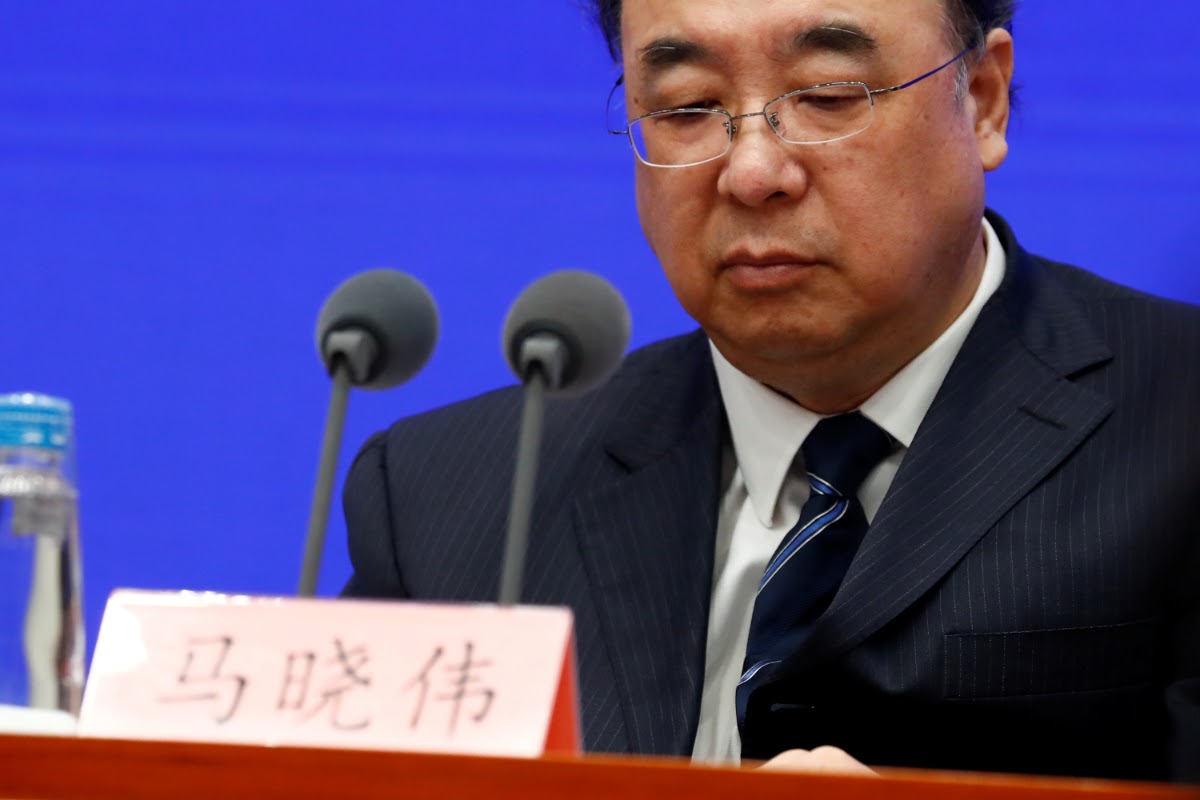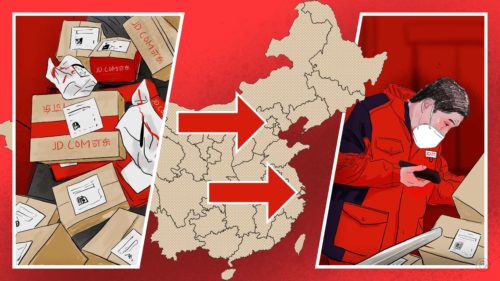Beijing updates sanitized timeline of COVID-19 response
China’s State Council Information Office has released a 37,000-word white paper assessing their summary of the government's response to Covid-19. Their conclusion? The CCP outperformed its own propaganda.

China’s battle against COVID-19, at least according to official numbers, has reached a fairly definitive conclusion: success. After Jilin Province in China’s coronavirus-spotted northeast lowered its emergency response level yesterday, the Guardian noted that no part of the country was considered at high risk of an outbreak anymore.
China’s propaganda battle to convince the world that it is not to blame for the pandemic, however, is still hot. In a follow-up to the sanitized timeline of China’s COVID-19 response published by state media two months ago, China’s State Council Information Office released a 37,000-word white paper yesterday adding even more detail.
The new timeline is no less sanitized, though it is getting an even greater push from officials, the New York Times reports:
In the report, local and provincial officials are described as acting decisively. The World Health Organization is said to have been kept informed in detail starting from January 3, while Chinese scientists quickly released the genome sequence. China’s top leader, Xi Jinping, is described as playing a pivotal role throughout the crisis…
The Chinese government put its full propaganda muscle behind the report. Three ministers, two vice ministers and the president of the Chinese Academy of Medical Sciences held a joint news conference to release it…
Mǎ Xiǎowěi 马晓伟, the minister who oversees the National Health Commission, said on Sunday that China had not covered up the epidemic. “We have not delayed in any way” the release of information, he said.
The assertions about timely release of information, particularly of the virus genome sequence and reporting to WHO, are contradicted by WHO officials on the record in the Associated Press last week. That report added to a body of evidence about Beijing’s governance failures in December and January in reports by outlets including Caixin, the New York Times, the Washington Post, and the Financial Times.
Since flaws in public information sharing cannot be admitted, Ma Xiaowei instead used his press conference time to focus on other potential reforms to China’s health system. The SCMP reports that he “identified five areas for improvement, including more investment in the public health system, giving the Centres for Disease Control more powers, a public health network to link hospitals to the CDC, a better epidemic monitoring and warning system and fostering medical talent.”
Another dubious assertion came from foreign vice-minister Mǎ Zhāoxù 马朝旭, who said, per the SCMP, “I don’t agree with the claim that China’s relations with other countries have been negatively impacted. It’s not true.” Rather, in Ma’s words:
A very few countries have gone against the tide of history and insanely launched a smear campaign against China, fabricating rumours and spreading the political virus with every possible means. China has no other choice but to fight back against this kind of blame-shifting.
Ma is probably thinking of the U.S. — see on The China Project, ‘Can lives be saved by attacking China?’ Beijing scolds Washington as Trump casts blame for ‘Plague’ — and perhaps also Australia, which Beijing continues to shun after it led a global campaign to investigate the origins of COVID-19. After China rejected Australian beef exports, it has now issued a travel warning for Chinese citizens going to Australia, and has been reportedly “ignoring Canberra’s pleas” for dialogue to resolve tensions, per Reuters.
But other countries, too, have rebuked Beijing in recent months. Most notable is Nigeria, whose House of Representatives passed a motion of censure without objection in late April, in response to COVID-19-related discrimination of Africans in Guangzhou. There have also been indications that China’s reputation in places like India, Brazil, and parts of Europe has taken a hit because of Beijing’s handling of the crisis and uneven global response.






